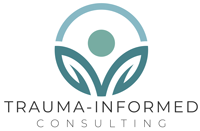Positively Lonely
It still seems strange that in a place with so many options and so many people, there could be an epidemic of loneliness. Yet it is in some of the busiest places that one finds these statistics alarming. Over half of us report feeling left out or alone sometimes or always. Nearly one out of three older Americans live alone and close to half report feeling lonely on a regular basis. Loneliness in all ages is on the rise alongside an increase in depression and anxiety.
I see a diverse group of clients here in West Los Angeles — a place full of restaurants, bars, beach fun and entertainment. For some, they find a niche and enjoy what it has to offer. For others, they find it just too big and diverse to find a sense of community. New transplants that move here, leaving a support system behind, can find it challenging. The fact that it can take an hour to get a few miles creates a barrier to getting together in person. Not to mention, many jobs now require long hours and others find themselves working more than one job to meet the high cost of living.
Find Your Place of Connection
What do we do when we feel lonely or without a sense of belonging? Often, we want to make a connection and be heard. We turn to someone we know and open ourselves up, only to find more rejection than support. Not everyone is comfortable with pain. They can be quick to remind us to be positive. They give easy answers, tell us to find a good therapist, and move on to a new topic.
Being positive has its place. The goal is to have our lives headed in positive directions and to seek contentment in the process. It is always good to reframe life in a way that empowers us and gets us working on solutions. But ignoring true feelings isn’t the answer. Pretending everything is fine doesn’t do the trick. And having relationships that don’t allow us to share both the joys and the sorrows will not meet our emotional needs. This is not the place to go when we need to be vulnerable and find a shoulder to lie on.
Relationships are key to healing. Developing quality relationships with people who share similar attitudes, interests, and values can create a better sense of belonging. Joining in with others to work towards a common goal builds connection and purpose. Staying close to supportive family members can enhance our sense of identity, as this involves loved ones that have been a part of our lifelong story. These are protective factors that help stave off loneliness.
Seek an Inner Circle of Trust
Critical to the need for connection is having a small circle of friends, or even one relationship that involves trust. When we can sit with someone that does not judge us, where we can express ourselves without having to filter or be told that we are too negative, and when the other person listens without quickly trying to fix us, that is the one we want to call our friend. This is where we want to be vulnerable. This is where we find empathy. This is where we find healing.
In these isolating times, we want to seek out and embrace our precious friendships. Take the time to stay connected. Listen to one another, allow each other to vent, to share hurt or anger, and even tell the same story over and over. There will be time to remind one another of the positives. There will be time to share solutions. But shying away from pain and not allowing ourselves to climb in the pit with those we love will not earn us the right to be trusted. If there is something I never want to be without, it is that special person that I can trust.
